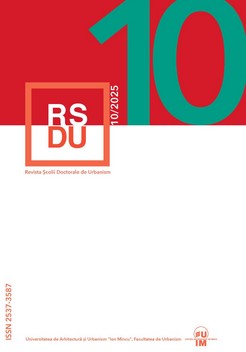Neurourbanism: from effective to affective computing in urban planning
Neurourbanism: from effective to affective computing in urban planning
Author(s): Andreea Robu-MovilăSubject(s): Architecture, Energy and Environmental Studies, Neuropsychology, Rural and urban sociology, ICT Information and Communications Technologies
Published by: Universitatea de Arhitectură şi Urbanism »Ion Mincu«
Keywords: generative design; neuroscience; emotion; EEG; literature review;
Summary/Abstract: This study stands interdisciplinarity at the intersection of computational sciences with neurosciences and urbanism that converge in the emerging field entitled neurourbanism. The generative ecosystem and ubiquitous computing in urbanism have reimagined urban planning that came with a range of implications, one of them being the fact that the design problem tends to be reduced to merely data manipulation and effective computing. This approach is simplifying in relation to many ineffable and incomputable dimensions that define the urban planning complexity and addressability. Consequently, affective computation has been identified as a direct manipulation mechanism of re-inserting the meaningful subjective human values and feedback into the generative designing processes as well as a tool for analyzing the implications that urban gestures modify or alter human perception and behavior. This paper nominates and analyses a series of studies that embrace neuroscience and affective computation in urban planning design, as well as author’s own experimental journey in this regard, intending to serve as an introduction to practitioners of this new field of study.
Journal: Revista Şcolii Doctorale de Urbanism
- Issue Year: 10/2025
- Issue No: 1
- Page Range: 85-94
- Page Count: 10
- Language: English

